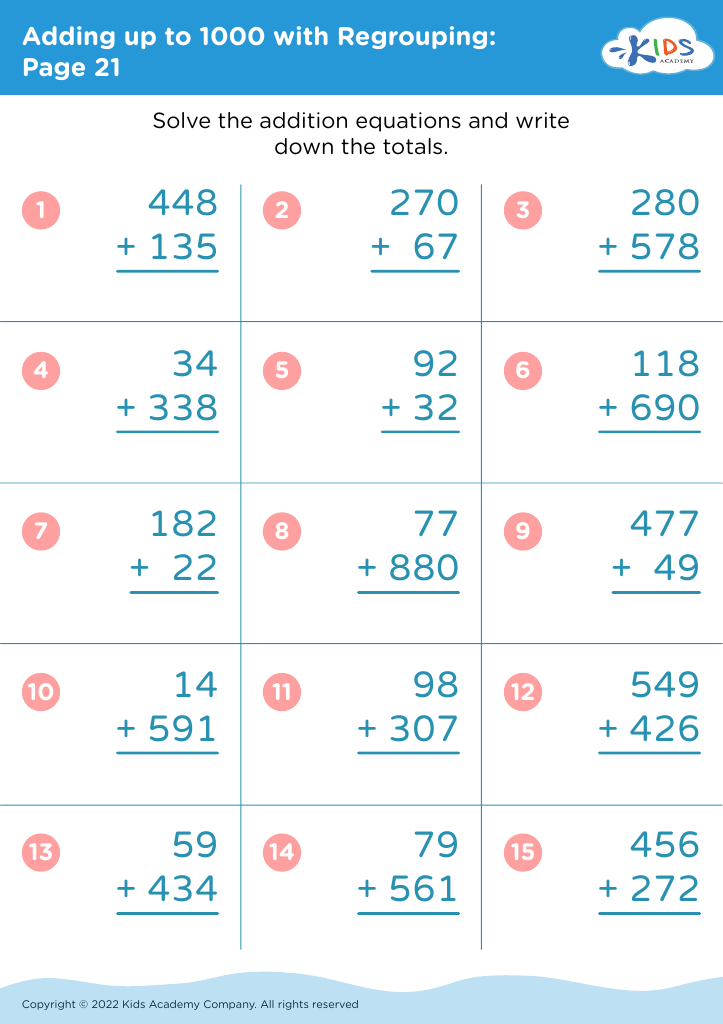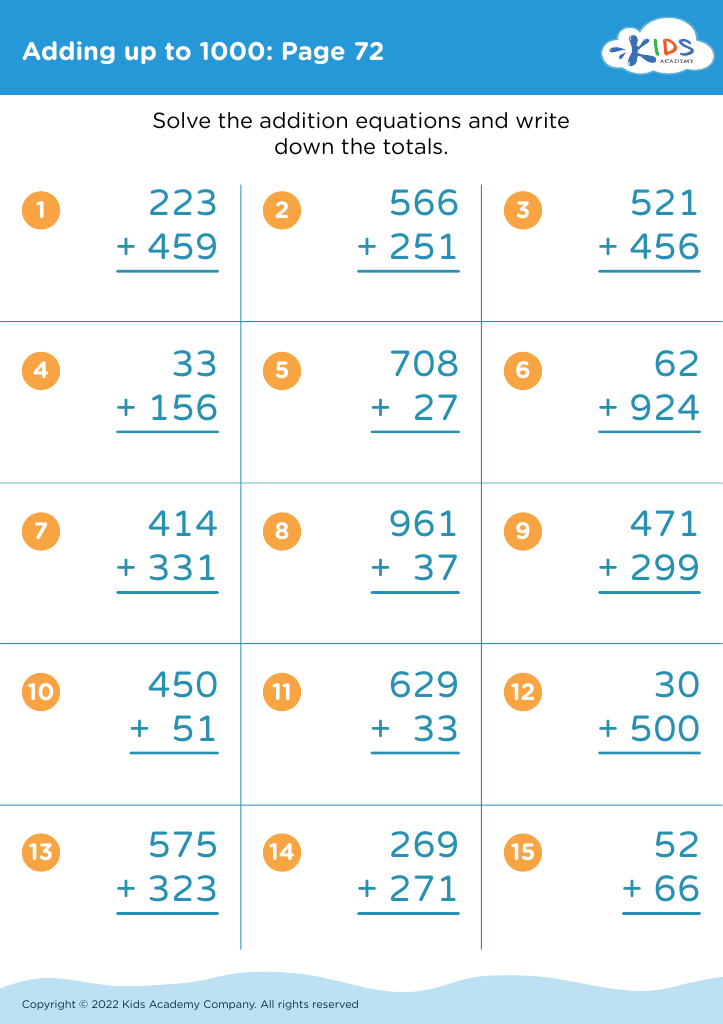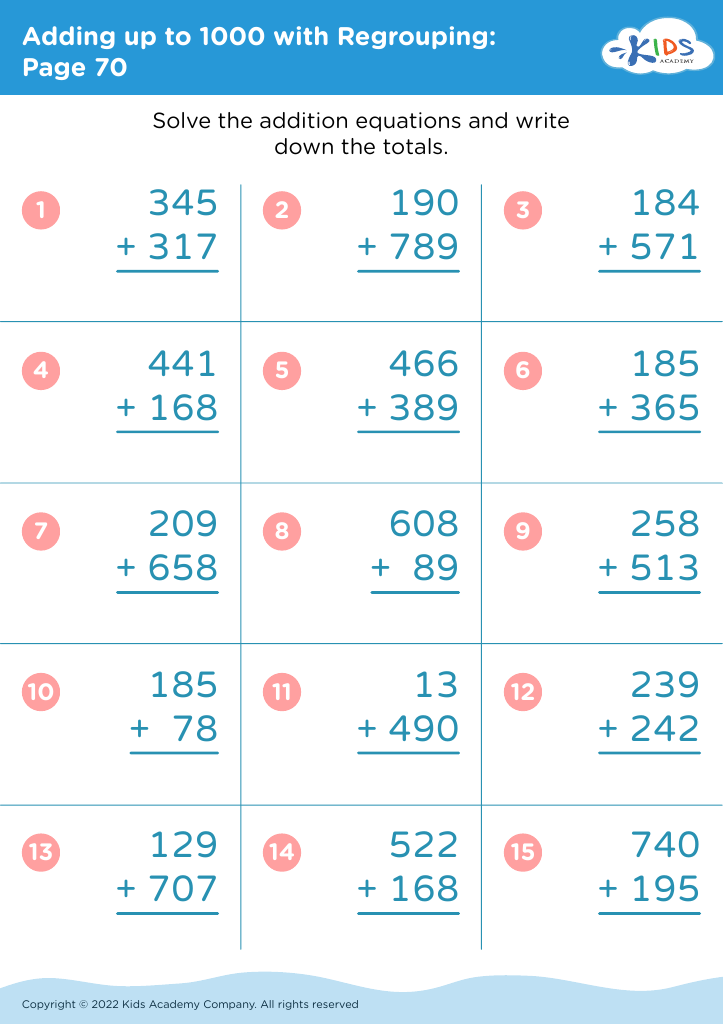Understanding Sequences Adding up to 1000 Worksheets for Ages 5-8
6 filtered results
-
From - To
Welcome to our "Understanding Sequences Adding up to 1000 Worksheets" designed for children aged 5-8! These engaging worksheets help young learners grasp the concept of numerical sequences and enhance their addition skills by exploring patterns and sequences that culminate at 1000. With interactive problems and vibrant illustrations, kids can practice recognizing and completing sequences, fostering their confidence in mathematics. Our resources are perfect for classrooms or at-home learning, making math both fun and educational. Equip your child with foundational skills in sequencing, addition, and critical thinking through our thoughtfully designed worksheets. Let’s make learning math a delightful adventure!
Understanding sequences that add up to 1000 is crucial for children ages 5-8 as it lays the foundation for essential mathematical skills. First and foremost, grasping sequences helps young learners develop number sense, allowing them to comprehend patterns, relationships, and the direction of numbers. This competence is instrumental for future math topics, including addition, subtraction, and even more complex operations in later grades.
Moreover, engaging with sequences encourages critical thinking and problem-solving abilities. When children explore how numbers can combine to form a sum, they learn to analyze different combinations, boosting their reasoning skills. This not only builds their confidence in mathematics but also enhances their overall cognitive development.
Parents and teachers should also recognize that early exposure to these concepts fosters a positive attitude towards math. By promoting understanding in these formative years, rather than rote memorization, children can cultivate a love for learning and exploration in mathematics.
Additionally, sequencing skills align with concepts they will encounter later, such as place value, rounding, and estimating; mastering these foundational elements sets them up for greater success as they progress through their education. Thus, investing time in understanding sequences benefits children's immediate learning and their long-term academic journeys.






















